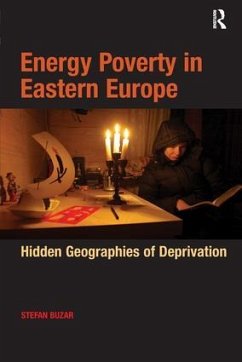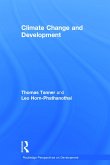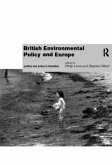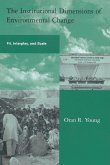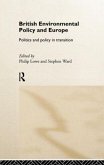One of the consequences of the post-socialist transformation of Eastern and Central Europe and the Former Soviet Union is the emergence of energy poverty, a condition where households are living in inadequately heated homes. This book provides the first full-length examination of the causes, consequences and patterns of energy poverty in former Communist countries. Based on empirical evidence that spans different spatial contexts and scales and compares these with other parts of the world, the book links household-level deprivation with broader organizational and political dynamics. The book also analyzes the lived experiences of scarcity and marginalization with the aid of two in-depth country studies. Furthermore, it identifies the socio-demographic factors that distinguish energy-poor families from the rest of the population, while stressing the need for a comprehensive range of policy tools to address energy poverty. As the issue of energy supply from the former Soviet Union is likely to become one of the most important economic and political problems across the whole of Europe within the next couple of decades, the book argues that there is a direct link between the energy crises experienced by the region, and the social aspects of energy use in households.
Hinweis: Dieser Artikel kann nur an eine deutsche Lieferadresse ausgeliefert werden.
Hinweis: Dieser Artikel kann nur an eine deutsche Lieferadresse ausgeliefert werden.
'This book makes a significant contribution to an increasingly important issue, namely the growing levels of social deprivation associated with the liberalization of energy markets in Central Europe. By combining the geographer's interest in place with a technical understanding of the inherited energy economies of the post-socialist states, the analysis provides critical insights into the challenges of energy poverty at a variety of scales across the post-socialist world.' Michael Bradshaw, University of Leicester, UK 'Rarely have the issues of poverty and social exclusion, energy, and post-socialist transformation been brought together. Energy Poverty in Eastern Europe provides a fascinating account of the complex dimensions of the new energy poverty in the post-socialist world. The book will become an essential source for those interested in the geographical political economy of transformation, not least because of its nuanced theoretical insights and its careful empirical depth.' Adrian Smith, Queen Mary, University of London, UK 'Stefan Buzar's book is a welcome contribution to our better understanding of eastern Europe in general and the problems of social exclusion and deprivation, the 'energy-poor' in the region, in particular.' Urban Studies Journal

